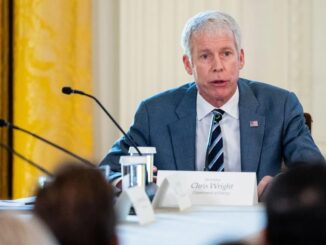
President Trump’s ambitious plan to rejuvenate the US shipping and shipbuilding industries is encountering significant challenges, just months after its announcement. Despite bipartisan support for revitalising the maritime sector as a matter of economic and national security, internal policy conflicts and administrative delays are hindering progress.
A key setback involves the suspension of the Food for Peace program, which previously provided essential cargo for US-flagged ships. The Department of Government Efficiency’s closure of the US Agency for International Development has effectively halted this program, leading to concerns about potential layoffs and idle ships within the industry. The administration has indicated no plans to rescue the program, citing it as wasteful, despite congressional efforts to transfer it to the Department of Agriculture.
Is Oil & Gas Right for Your Portfolio?
Additionally, the newly established shipbuilding office within the National Security Council has experienced significant staff reductions, shrinking from seven to two members. This downsizing raises doubts about the office’s capacity to coordinate the extensive Maritime Action Plan outlined in the executive order signed in April. The plan aims to revitalise shipbuilding, expand the US-flagged fleet, and counter China’s dominance in global shipping.
Compounding these issues are concerns over the administration’s proposed budget for navy shipbuilding. Senator Roger Wicker, the Republican chairman of the Senate Armed Services Committee, criticised the reduction in the shipbuilding budget from $37bn to less than $21bn, particularly the omission of new destroyers. He warned that such cuts could destabilise the industry and slow shipbuilding efforts. The administration contends that the total shipbuilding request is $47.4bn, combining discretionary and mandatory spending, but lawmakers remain sceptical.
Further delays in appointing key leadership positions, such as the head of the Maritime Administration and the assistant secretary of the Navy for Research, Development, and Acquisition, are also impeding the execution of the maritime strategy. Without these appointments, implementing the executive orders and strategic plans remains challenging.
A recent survey shows more than 80% of Americans would like to see more manufacturing move home, and yet the same poll shows less than 20% of the population would be willing to work in the sector, a juxtaposition illustrating another of the hurdles the Trump administration faces if it genuinely wants to resurrect its moribund shipbuilding scene.
Global Times, a state-run Chinese newspaper, lambasted the American plans earlier this year in an OpEd, arguing: “The chasm between American and Chinese shipbuilding is fundamentally a gap in industrial infrastructure. The forces of globalisation swept away America’s steel mills, machine shops and skilled labour force, leaving behind rusting supply chains and a hollowed-out manufacturing base. Shipbuilding, a quintessential heavy industry, requires a robust industrial foundation. When that foundation crumbles, shipbuilding inevitably follows.”
Putting the scale of how far behind American shipbuilding is to its Asian rival, China manufactured more commercial vessels by tonnage in 2024 than US shipyards have built since the end of World War II.
Is Oil & Gas Right for Your Portfolio?
Crude Oil, LNG, Jet Fuel price quote
ENB Top News
ENB
Energy Dashboard
ENB Podcast
ENB Substack






